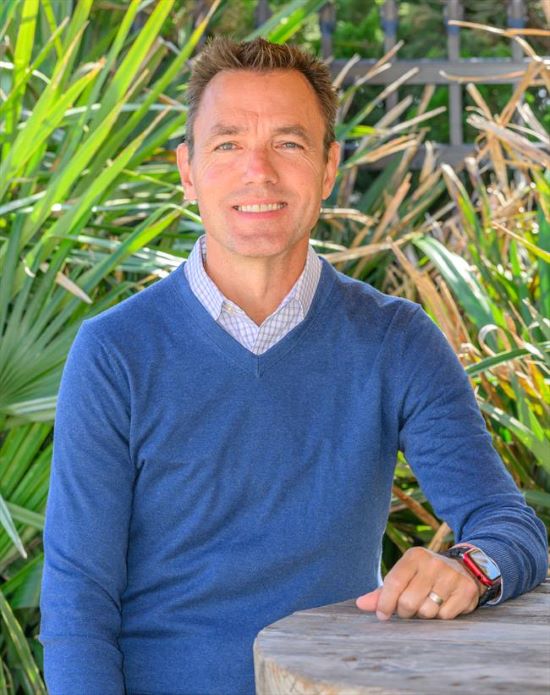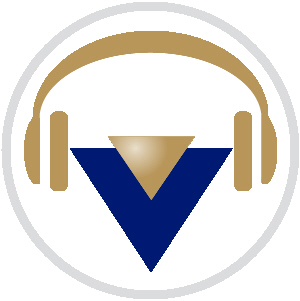Kimball Carr

Photo courtesy of Inspire Veterinary Partners
Kimball Carr, co-founder and chief executive of Inspire Veterinary Partners, posits that offering staff an equity stake in the business will provide it with a competitive advantage.
 Listen to this story.
Listen to this story.
At least two corporate consolidators that aim to offer their rank-and-file employees ownership stakes in their businesses have appeared in the veterinary realm. But they're off to bumpy starts.
Their emergence is underpinned by a promise that by giving everyone skin in the game — whether veterinarians, veterinary technicians or reception staff — employers can create healthier workplace cultures and combat mental health issues that plague the profession.
The jury still is out on whether such consolidators can hit ambitious growth targets and maintain ownership structures over the long term that, as they maintain, put staff well-being on par with profits.
Among the players is Inspire Veterinary Partners, which has acquired 13 practices in eight states since its founding in 2021 and last month agreed to acquire three more, including its first specialty and emergency hospital. The company's progress has been far from smooth. Having listed on the Nasdaq in late August, its shares have fallen about 75%.
Another player, Galaxy Vets, also established in 2021, had planned to rapidly acquire practices in the United States with the backing of a private equity firm that would take a minority stake in the business. But it has dropped that acquisitive model, at least for now, and instead will build veterinary practices in Canada from scratch.
Both companies' strategies are grounded in the adoption of employee stock ownership plans (ESOPs), which are legal structures that divvy assets among staff and receive generous tax treatment from governments.
ESOPs can own either all or part of a company. How many shares each employee gets in the ESOP usually is determined in proportion to the size of their salary and/or how long they've worked at the business. Employees don't have to pay anything for their shares — the ESOP funds the purchase of the veterinary assets, typically with a loan paid off using the business' profits.
Rare in veterinary medicine, ESOPs have been adopted successfully by a handful of independent veterinary hospitals with more modest growth ambitions. Consolidators of veterinary hospitals are getting in on the act, too, amid hopes they can build large, multi-practice businesses that are able to retain staff for the long term.
A potential pitfall associated with ESOPs is that they are limited by law to paying an independently appraised sum for a purchase, technically known as "fair market value," that potentially puts them at a competitive disadvantage when bidding for assets. Other aspiring buyers might be able to bid more than fair market value by factoring in the savings they can achieve by eliminating overlapping expenses.
Big investment managers nevertheless have started eyeing ESOPs. Earlier this year, the nonprofit group Ownership Works was established by private equity firms and banks to encourage the development of "innovative broad-based employee ownership programs." Some ESOP advocates, however, are skeptical that private equity companies, which typically are highly cost conscious and hold onto assets for only a limited time, will place employee welfare high on their list of priorities.
Inspire eyes more acquisitions despite share-price slump
Inspire Veterinary Partners was co-founded in 2021 by its chief executive, Kimball Carr, a businessman who worked for eight years at Mars Inc., one of the world's biggest owners of veterinary hospitals, most recently as a regional vice president for its U.S. veterinary business. Inspire hasn't launched its planned ESOP but expects to do so in coming weeks. How much of the company's equity will be devoted to the ESOP has yet to be announced.
"We want it to be deep and broad," Carr said in an interview, referring to both the size of the ESOP's ownership share and the number of Inspire's around 200 staff he hopes will opt in. "Very early on, one of the things I wanted to do while we were structuring the company was make sure that folks at all job levels — at various base work hours, at full- and part-time equivalency — can take advantage of the ESOP structure."
Inspire debuted on the Nasdaq in an initial public offering of shares that raised $6.4 million and made it the only owner of veterinary practices in the U.S. that is publicly listed. The shares, sold to investors at $4 each, quickly tumbled and are now below $1.
Carr said the sell-off was driven, at least in part, by a large number of existing shareholders taking the IPO as an opportunity to cash in their chips. The poor share-price performance could make it tough for Inspire to raise capital on the share market again, since investors may fear the company is overstating its potential. Carr pushed back on the idea that Inspire's practices have poor growth prospects or that the company will struggle for funding.
Inspire, he said, still is aiming to acquire 10 veterinary practices every year for the next five years. Future acquisitions, he said, could be funded via a combination of debt and cash generated by the business. "We've enjoyed wonderful bank-lending relationships up to now," he said. "We've got a really robust investor-relations team and investor-relations approach, and we've got great banking support."
Inspire also would be willing to woo private equity, albeit only to take a minority, non-controlling stake in the business, he said.
The company has yet to turn a profit. In 2022, it posted a net loss of $4.91 million, widening from a net loss in 2021 of $1.33 million. Revenue in 2022 of $9.83 million was more than offset by expenses, though some of those were one-off costs associated with making acquisitions and managing the IPO. As of Dec. 31, the company had total liabilities, including debt, of $25.32 million.
Carr said Inspire's ESOP should help its hospitals improve their financial performance over the longer term because staff will be directly invested in the future of the company. "Beyond some of the altruism of an ESOP, we wanted to create a competitive advantage," he said. "The No. 1 issue that we all face is staffing on the DVM side, and if we can do something to achieve better than the 30- to 36-month average retention that doctors tend to stay in a role — if we can do 48 months or 60 months or 10 years — that's an advantage for us."
As to the more immediate future, Carr told investors during a recent virtual conference that he expects the company to break even during 2024, contingent on it acquiring another three to five veterinary practices in the coming months as planned. Inspire, he maintained, won't need to burn through as much cash as before. "Our burn does not need to continue to grow at the same rate as our revenue because we can now acquire [practices] faster than the talent that we will need to add, since we've built a portion of the team that we need to grow," he said.
Galaxy to build practices in Canada
Another ESOP veterinary consolidator has decided to put acquisitions on hold.
When he launched Galaxy in August 2021, Dr. Ivan Zakharenkov invited practices across the U.S. to join a company that promises to "allocate equity to its veterinary teams and have burnout prevention as a strategic priority."
Last October, Zakharenkov told the VIN News Service that Galaxy planned to have acquired 12 practices by the end of 2022. The company also was hoping to attract investment from a private equity firm that would take a "significant" minority stake in the business. An ESOP would hold a substantial minority stake, too.
Since then, Zakharenkov said, the investment climate has become less hospitable due to rising interest rates, which increase the cost of borrowing. "This burst of the market bubble created a more challenging environment for acquisitions," he said this month by email.
Practices that once were selling for 18 times the value of their annual earnings are now selling for just six times earnings as investment capital dried up, Zakharenkov observed. Moreover, large consolidators backed by private equity, he said, recently have been struggling to attract the same level of investment when they've put their hands out for more funding.
"In light of these market dynamics, we have made the decision to temporarily suspend our efforts in acquiring new veterinary hospitals," he said. Instead, Galaxy will concentrate on building new veterinary practices in Canada from the ground up. "When the market conditions are right, we will revisit our M&A [mergers and acquisitions] strategy in the U.S."
Galaxy expects to open its first emergency hospital in New Brunswick, Canada, this month.
When asked about rival group Inspire's poor share-price performance, Zakharenkov said the fall doesn't necessarily indicate the market is skeptical of ESOP consolidators. "We have not seen the correlation between the ESOP model and its attractiveness to investors," he said. "There are investors that understand ESOPs, and there are investors that don't."
Any company that is trying to grow quickly via acquisitions, he said, is facing a more challenging funding environment at the moment, ESOP or not.
"We stay committed to our belief in employee ownership and burnout prevention by design — central pieces of Galaxy Vets' thesis," Zakharenkov said. "These principles will be integral to the development of our new hospitals, aligning with Galaxy's original mission and vision."